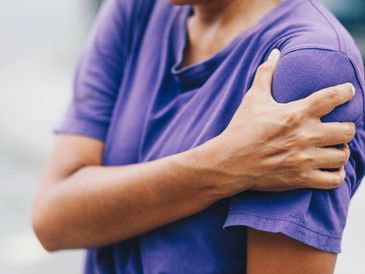Health Revolution Warnervale Physiotherapy & Psychology Services
Holistic and Evidenced-based
Physiotherapy & Psychology Care in Warnervale

Holistic and Evidenced-based
Physiotherapy & Psychology Care in Warnervale


Whether you've pulled up sore from a game over the weekend, are dealing with a nagging pain, have suffered a serious injury, or are managing a work-related injury — we're here to help

If you're preparing for surgery or recovering afterwards, we’re here to support you every step of the way. Whether it’s getting your body ready or helping you rebuild strength and mobility, we’ll guide your rehab with care and expertise.

We proudly provide NDIS-funded treatment and home visits for those who need extra support. Whether you're working towards greater independence, mobility, or comfort at home, we're here to help with personalised care that meets you where you’re at — literally.

Living with complex chronic conditions like EDS, migraines, persistent headaches, or POTS can be exhausting — but you don’t have to manage it alone. We take the time to listen, understand your unique experience, and tailor treatment that supports you in daily life, not just in the clinic.

Work-related stress and burnout can take a real toll on your mental and physical health. Whether you're dealing with anxiety, low mood, or feeling overwhelmed, our psychological services offer a safe space to unpack what's going on and develop strategies to help you cope, recover, and thrive.

Experiences of trauma can leave lasting impacts — emotionally, mentally, and physically. Whether you're living with post-traumatic stress or other trauma-related challenges, we offer compassionate, evidence-based support to help you feel safe, regain control, and move forward at your own pace.

Struggling with anxiety, depression, or mood changes can feel isolating — but you're not alone. We offer a supportive, non-judgemental space to explore what you're going through and provide practical, evidence-based strategies to help you feel more balanced, connected, and in control.

Living with a complex chronic illness can take a significant toll on your mental and emotional wellbeing. Our psychological services provide a safe, supportive space to help you navigate the challenges, manage the emotional impact, and build tools to improve your quality of life over time
We’re reimagining healthcare with a compassionate, whole-person approach to pain, injury, and complex conditions. Whether you're navigating chronic symptoms or recovering from a recent injury, our team is here to listen, support, and empower you.
In the spirit of reconciliation Health Revolution acknowledges the Traditional Custodians of country throughout Australia and their connections to land, sea and community. We pay our respect to their Elders past, present and emerging and extend that respect to all Aboriginal and Torres Strait Islander peoples today.





Unit 89, 2 Warren Road, Warnervale New South Wales 2259, Australia
Open today | 09:00 am – 05:00 pm |
Please reach us at admin@health-revolution.com.au if you cannot find an answer to your question.
Your psychologist will take a detailed history, discuss your concerns, and work with you to set goals for therapy. It’s a safe space to explore thoughts, feelings, and behaviors, with an emphasis on strategies to improve well-being.
Your physiotherapist will assess your movement, strength, and pain levels, take a health history, and develop a personalized treatment plan, which may include exercises, manual therapy, or education on pain management.
Evidence-based therapies like Cognitive Behavioral Therapy (CBT), Acceptance and Commitment Therapy (ACT), and mindfulness techniques help reframe negative thoughts, develop coping skills, and improve emotional regulation.
Treatments like Trauma-Focused CBT and Eye Movement Desensitization and Reprocessing (EMDR) help process traumatic memories, reduce distressing symptoms, and build resilience.
EMDR (Eye Movement Desensitization and Reprocessing) is a structured therapy that helps the brain reprocess traumatic memories using guided eye movements, reducing their emotional intensity. Research supports its effectiveness for PTSD and trauma-related disorders.
Pre-surgery physiotherapy (prehab) strengthens muscles, improves mobility, and enhances recovery. Post-surgery physiotherapy restores movement, reduces pain, and prevents complications like stiffness or weakness.
Physiotherapy uses movement-based therapy, pain education, manual therapy, and graded exposure to help retrain the nervous system, reduce sensitivity, and improve function without worsening symptoms.
Yes. Physiotherapy helps improve overall strength and resilience while exploring comfortable movement patterns to reduce pain and enhance function. Manual therapy and guided exercises can also assist in relieving nerve-related discomfort.
Physiotherapy helps manage EDS by improving joint stability, reducing pain, and preventing injuries through strength and proprioception training. For POTS, physiotherapy focuses on graded exercise programs to improve circulation, autonomic regulation, and overall tolerance to movement, helping reduce dizziness and fatigue.
Yes we do! Our physio provides at home therapy for those unable to get to the clinic. We service the following areas:
- Warnervale
- Woongarrah
- Lake Haven
- Blue Haven
- San Remo
- Doyalson
- Budgewoi
- Buff Point
- Wadalba
- Kanwal
- Wyee
- Toukley
- Norah Head
- Charmhaven
- Lake Munmorah
- Hamlyn Terrace
If your suburb isn't listed above, please give our team a call to see if we can help.
This website uses cookies. By continuing to use this site, you accept our use of cookies.